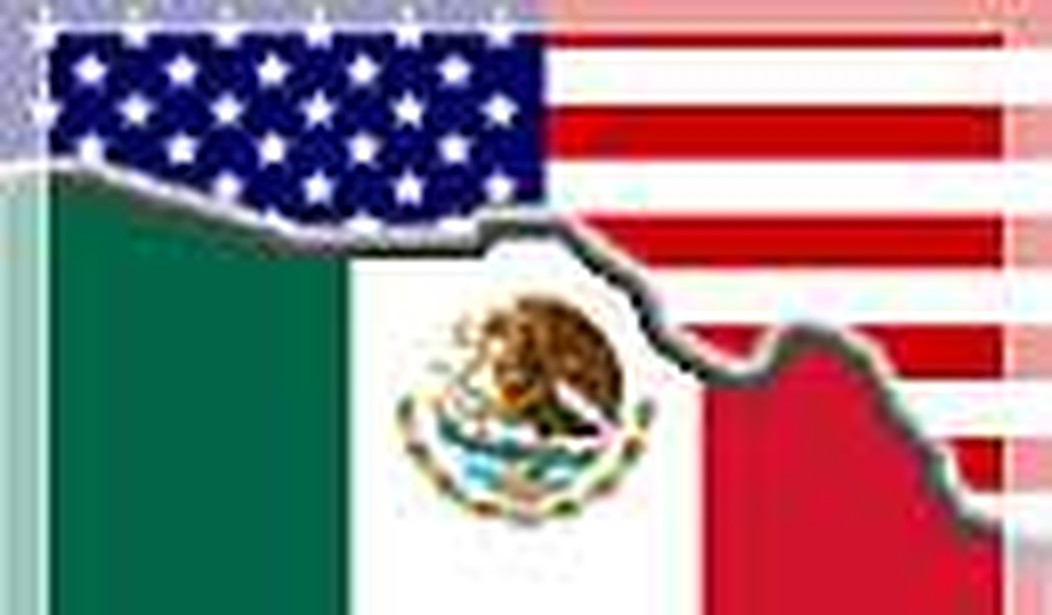A recent Los Angeles Times article brings to mind an important — and sure to be controversial — question: Is Giovanni Lanaro an American?
Who’s Giovanni Lanaro?
He’s the seventh-best pole vaulter in the world. To help answer the first question I raised, here’s some pertinent information:
- Lanaro was born in Los Angeles.
- Lanaro is quoted in the Times as saying: “I live in the States. Everything I do is in the U.S.”
- Describing the reception he gets when he competes in Mexico, Lanaro says, “You come in and you are American.”
My question is too easy, right? Surely this guy is as American as apple pie. But wait, there’s more:
- Lanaro was born to an American father and Mexican mother, qualifying him for dual citizenship.
- Lanaro thinks he could have made the U.S. team for this month’s championships. “But that’s not what I want,” he says.
- What does he want? “Ever since I was young, I wanted to compete for Mexico.”
- Why? “We live in the U.S., but the culture is a Mexican culture and that’s what I grew up around.”
Lanaro’s wish has come true. He is one of no fewer than nine athletes born in the U.S. but named to the Mexican Pan American team. A post on radio talk show host Dennis Prager’s blog characterized this as a disturbing trend: “Born, raised and educated in the U.S., they identify with another country.”
Indeed, radio talk show hosts have born the brunt of the criticism from supporters of the now-defeated Senate immigration bill. They have often been called nativists or racists for their opposition to illegal immigration and amnesty plans. The over-the-top rhetoric of some shock jocks notwithstanding, most critics of the bill were simply echoing the concerns of the majority of the public.
Peggy Noonan described their feelings in a Wall Street Journal piece last year: “It’s the broad public knowledge, or intuition, in America, that we are not assimilating our immigrants patriotically. And if you don’t do that, you’ll lose it all.”
It’s not as if patriotism is a dirty word for most immigrants. At immigration rallies held in cities across the country, Mexican flags have been ubiquitous. The apex of this Mexican patriotism was reached last year at a rally in the city of Maywood near Los Angeles, when “protesters raised the Mexican flag on the pole in front of the U.S. Post Office.”
While many bloggers commented on the lack of American pride on display at these demonstrations, the mainstream media was relatively quiet on the subject. Mickey Kaus noted that the Los Angeles Times didn’t mention the sea of Mexican flags at one huge Los Angeles rally in 2006. The paper did, however, report that there were “more American flags than those from any other country.” To prove the disingenuousness of this claim, Kaus linked to a representative Times photo of the crowd that showed there were at least as many Mexican flags as American flags at the demonstration.
One can argue that this is not a significant development. Perhaps waving another nation’s flag while simultaneously demanding all the rights afforded to American citizens is as benign as eating a burrito on the 4th of July. But to ignore the story completely prevents any debate from taking place.
It’s quite possible that the Mexican flags are symbolic of multiculturalism’s negative effects. While there’s nothing wrong with fostering cultural pride, we are doing immigrants no favors by failing to instill in them a deep respect and abiding love for America. PJM blogger and author of Mexifornia, Victor Davis Hanson, has described this moment in the nation’s history as the only time when the majority has felt it easier to allow immigrants to keep their own culture rather than join the majority. Hanson’s description of life for Mexican-Americans in modern day America is revealing:
A limited annual visit or a family reunion nourishes enough nostalgia for Mexico to war with the creation of a truly American identity. For Mexican immigrants, the idea of Mexico has shifted from a liability to an important benchmark of ethnic pride in the last two decades. A visiting Mexican soccer club playing almost any American team will find in our local fans a home-crowd advantage — despite being 1,000 miles from home. Mexicans in California turn out to vote in booths set up in California for local and national candidates in Mexico…
Mexicans also receive school letters in Spanish. I know because I passed them out regularly during my years as a substitute teacher in a largely Hispanic section of Los Angeles.
Teachers are sometimes afforded a glimpse into the future before the rest of the population. As I’ve written before, one question I always tried to ask students was: “What country do you live in?” “California” and “Los Angeles” were the most popular responses. When my students — after a helpful reminder from me that they pledged allegiance to this country earlier in the day — finally realized that they live in the United States of America, I asked them to name one of the fifty states. Only on rare occurrences was “Mexico” not mentioned. Indeed, in more ways than one “Mexifornia” has already arrived.
I should mention here — in order to counter the inevitable charges of being anti-Spanish and anti-immigrant — that I speak Spanish at home. I’m married to a native Spaniard, who has become a permanent resident of the United States. While she will always love Spain, she chose to live in America because she believes it’s the greatest country in the world. In fact, when we returned from our most recent trip to Spain she told me that she “felt like she was home.”
I think feeling American is just as important as being American. That’s why I’d answer the question I posed above in the affirmative: Giovanni Lanaro is indeed an American. This was made clear in the Times article when Lanaro talks about hearing the American national anthem: “When I would hear it, it was like, ‘Wow, it’s amazing.’ Even when I hear it to this day, I still have the same feeling.”
His feeling is duly noted. But Lanaro shouldn’t be surprised at the feelings many Americans are going to have about his decision to compete for Mexico.










Join the conversation as a VIP Member